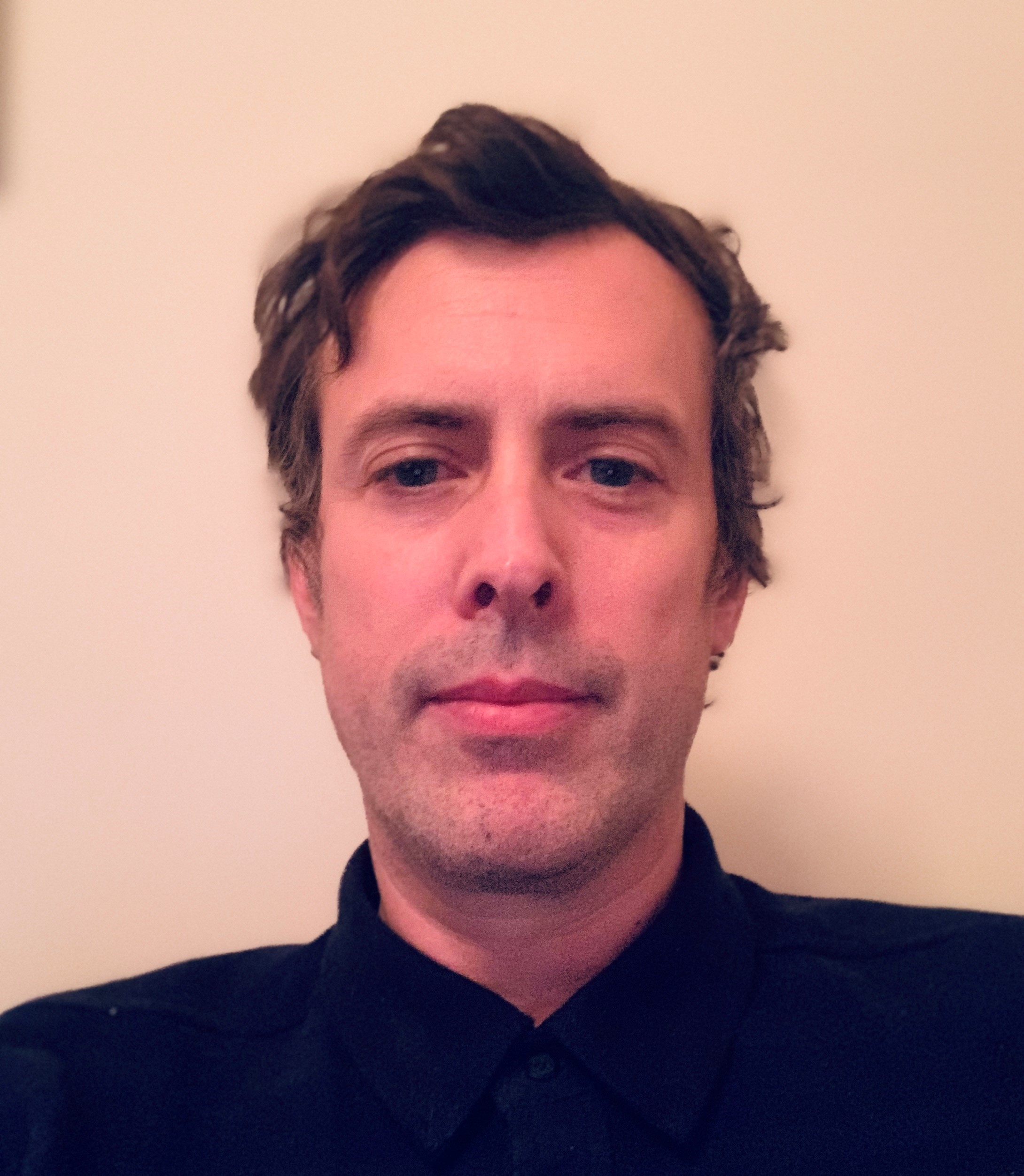Employee Spotlight
May 8, 2024
Ryan Parish
Substance Use Disorder Senior Social Worker
VA Portland Health Care System, Community Reintegration Services (CRS)

This year, we’re spotlighting VA’s Housing First approach through a series of interviews with VA employees and taking a look at how they’re working to end Veteran homelessness through this approach. Learn more about Housing First.
Q: How long have you been with VA? Can you tell us about your role?
A: I started working at VA about 11 years ago in the opiate treatment program because I was intrigued by medications for opioid use disorder (MOUD) treatment and had some experience supporting people in the community with accessing medication-assisted treatment (MAT).
I transitioned to the HUD-VA Supportive Housing (HUD-VASH) program a couple years after that, then into my current role as the substance use disorder senior social worker on our enhanced team for CRS.
In my current role, I liaise with our outpatient and residential substance abuse treatment programs, as well as our PC MAT clinic, which is a great low barrier stepped care clinic at VA. I get to do a lot of training with our staff as they onboard. A big part of that training is harm reduction, as it’s the most efficacious practice and a central tenet of Housing First.
Q: When you think about Housing First, what does it mean to you personally in terms of how you approach your work?
A: Housing First is about basic human rights and dignity—it's also about my dignity. Many of us who come to this work have gone through our own experiences. For me, for my personal trauma healing, the hardships I've faced and overcome could not have happened without a safe place.
Having a place where you can shut the door and be quiet with whatever is there with you deescalates suffering and sponsors healing. That alone is one of the most powerful things I've experienced myself and seen in those who I've served throughout my life, both professionally and personally. To have that place—that's what Housing First means to me. Nothing can change, and nothing can heal, without first having that opportunity for safety.
Q: What do you tell new staff about harm reduction and Housing First when they’re onboarding?
A: I tell new social workers that 7 out of 10 of the Veterans they meet will either have active substance use or a history of opiate use disorder or stimulant use disorder. But these Veterans all deserve to have their dignity respected and to have a conversation about being safe. If they're in recovery, have the conversation about providing them with what they need. If they want to continue their service or help their community and serve others, have them involved in the process, because that's a big part of what harm reduction and Housing First is.
It's a slippery slope when you see someone suffering and you’re a caring professional who’s also the messenger between housing authorities and others who have power and privilege. It can be difficult to help Veterans navigate rules and expectations that are counterintuitive to trauma-informed care, Housing First, and harm reduction principles. That’s a big conversation about the obligation to provide the same quality of care regardless of whether they’re injecting or using illegal drugs. You have to provide them with the same housing opportunities, and not interview them toward treatment. You interview them about what their use means to them as far as creating safety, and you ask how you can support them in making it safer.
Even caring professionals like us have to check ourselves when, for example, we think a meeting is not going to be productive because the Veteran has been using. That is not Housing First and that is not ethical care. That means that you're there for your purpose.
I always say to our staff, “As long as it it's safe, right? You know how to stay safe with someone who's actively drug-affected or using. How can that time be spent creating and exploring safety for them? What trust can you build in that time?”
Q: How are you working to remove barriers to housing for those who are using substances?
A: Housing First is quick access and no barriers to treatment. We have an obligation to provide the same quality of care and the same exact housing opportunities, regardless of whether someone is using illegal drugs, and not just directing them towards treatment.
After they’re housed, we have the next dialogue about how they can stay safe. We have the opportunity to reinvent what a caring professional looks like—someone who is going to not judge you and is going to treat you with absolute dignity.
Another cool thing that we've done is use the domiciliary beds in our Residential Rehabilitation Treatment Program (RRTP) for short stays and quick referrals, so someone doesn’t relapse into houselessness secondary to substance use. We’re able to quickly bring them into care so we don't have the continued trauma-enforcing cycle of recidivism to houselessness.
In general, in all the places that feed into our permanent supportive housing, everyone has created a lot of space to understand how important episodes of relapse are. Rather than using language like, “You messed up, you're out of here,” they say, “So what can we do to make sure you're safe? Do you want a menu of options to stay safe?” That has been really helpful.
It really sponsors episodes of care that are free of judgment. People may not necessarily stay housed, but I think it creates more stability in the process. For those who continue to remain housed, it also results in more opportunities for them to become leaders in care for their community, which is the most powerful thing.
Q: What do people get wrong about Housing First and harm reduction, and what would you want them to know instead?
A: This isn't just something for social workers; it's for everybody. So much suffering would ease if we stopped thinking that Housing First and harm reduction are just ways for us to provide care, and instead it was a way for our culture to live, with everybody taking responsibility for the spirit of it. There is something incredibly beautiful about Housing First and harm reduction that I hope people look to as a spiritual guide in whatever spirit they live in. I think it’s real magic.
Q: What's your “why” for the work that you do?
A: When I started my work, I was in New York doing something different and went through my own experiences in the aftermath of 9/11. In the months after, I wasn’t able to do a job that was not about being connected in the community.
I found that everybody was really interested in loving each other. In shared suffering, the doors opened, which was counterintuitive to what I had expected. There was a state of grace that fell over that time. It created the framework for me to understand that the way to have a good quality of life, and experience love and healing, is to share in the suffering together. Not to be sad, but to be joyful.
I think that's where it started and what brought me into this work. Having a home, having love, and having your basic needs met are the most powerful things. It's obvious and it's practical, and yet it's the hardest thing for us to do for each other. I also do this because I think it's probably the most challenging work there is, even though it's the simplest.
I am bearing witness to the opposite narrative of what’s out there. I’m seeing the creativity and the genius of all our providers as well as their hearts. It's growing and it's unstoppable. I just appreciate everybody continuing to hold that.



















